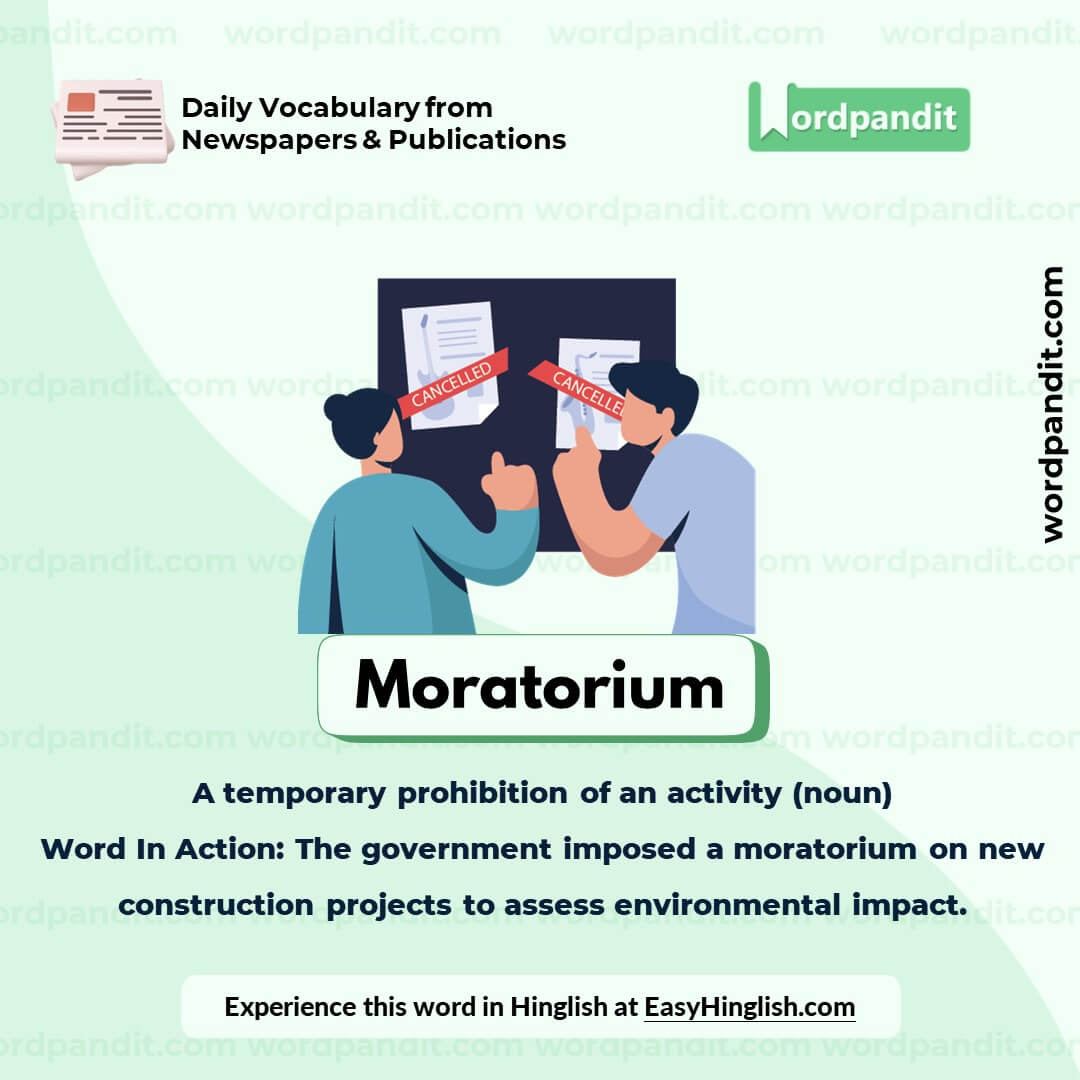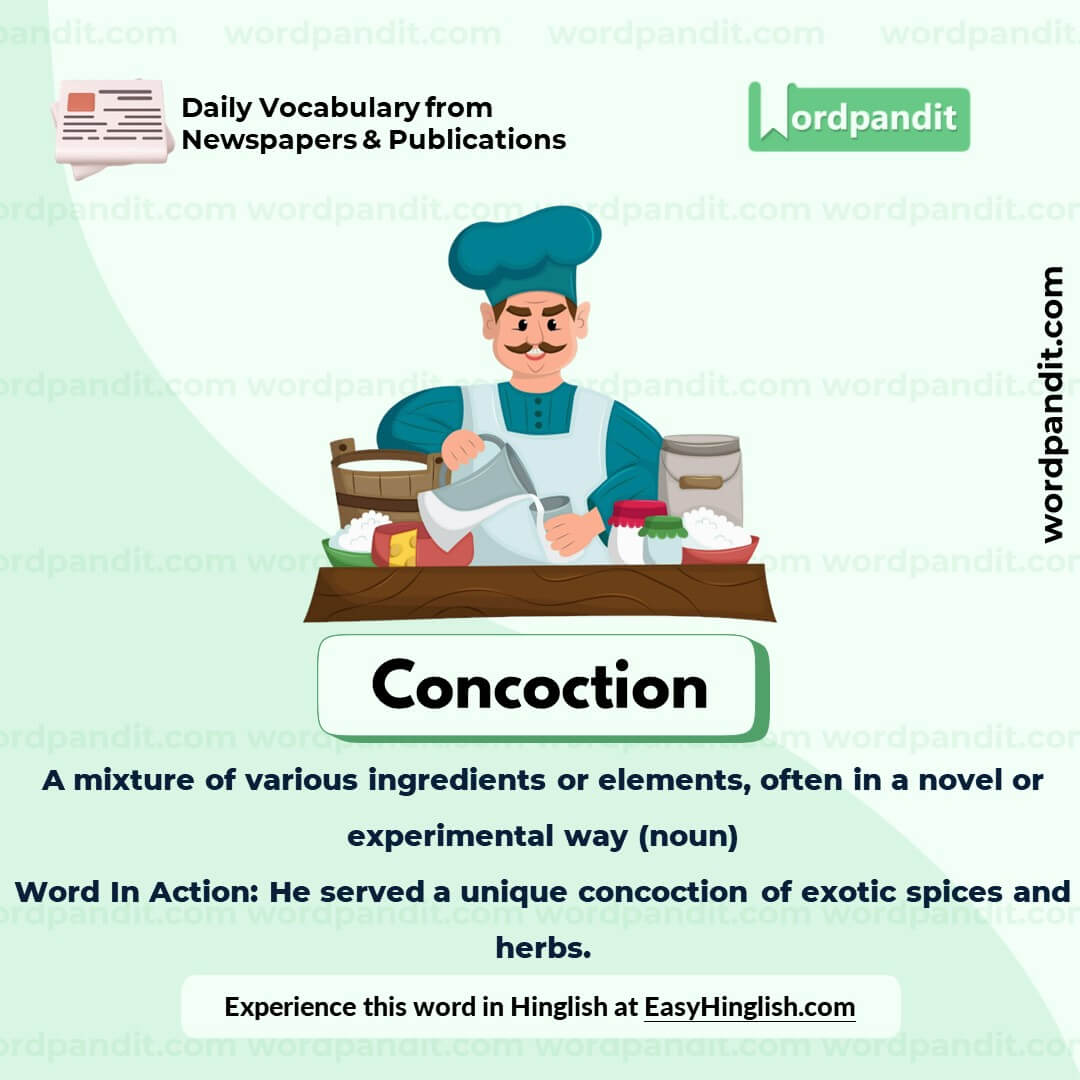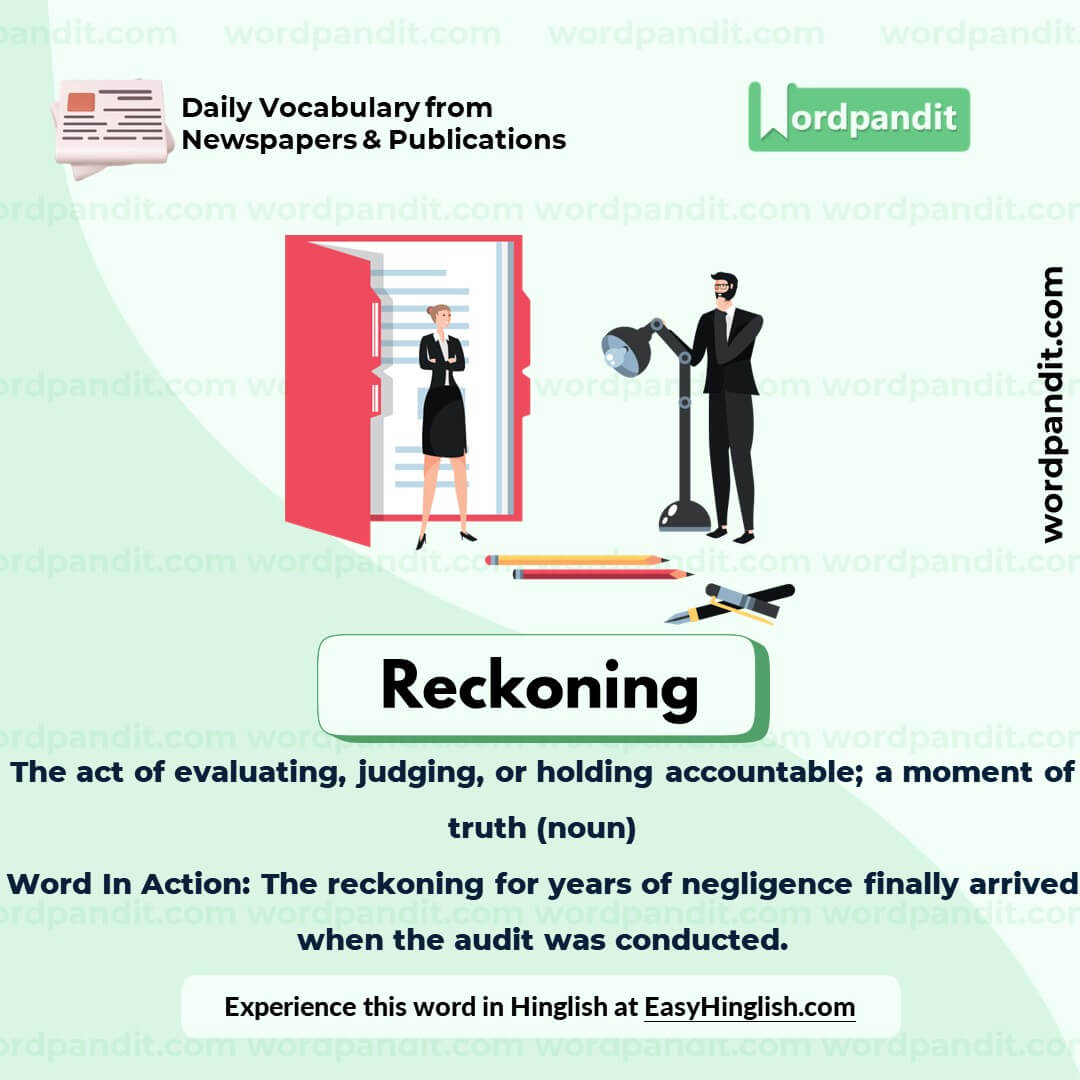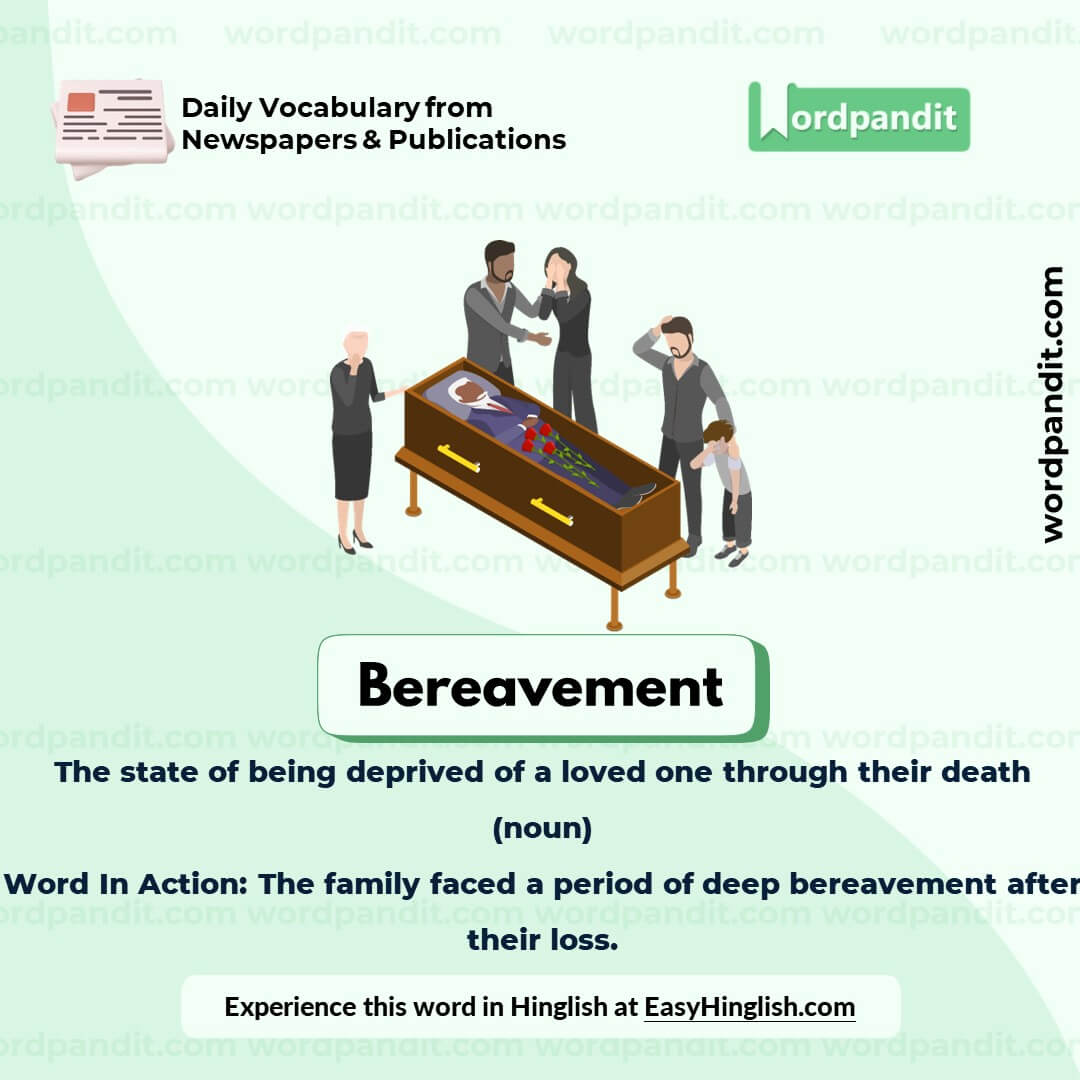Daily Vocabulary from International Newspapers and Publications
Expand Your Vocabulary with Wordpandit’s Global Vocabulary Hub
At Wordpandit, we are committed to helping you develop a truly global vocabulary by drawing from some of the most respected international publications. This section is designed to keep you ahead of the curve by introducing you to words that define global conversations and trends.
The Power of Global Sources
To help you think and communicate on a global scale, we curate vocabulary from renowned international sources, such as:
- The New York Times
- The Washington Post
- BBC
- The Guardian
- The Economist
- Scientific American
- Psychology Today
- And many more...
Stay Global, Stay Competitive
Our daily updates from international publications ensure you are consistently exposed to new words that reflect global news and developments, making sure your vocabulary is not only current but also globally relevant.
Enhance Your Global Perspective
Whether you’re preparing for international exams, aiming to excel in global business communication, or want to enhance your language skills for personal growth, Wordpandit offers the resources you need to thrive in a global context.
Effective Learning, Global Reach
Our learning methodology combines global examples, memory aids, and interactive activities, allowing you to internalize new words effectively and apply them in real-world scenarios.
Begin Your Global Vocabulary Journey Now!
Why Choose Wordpandit?
Practical Learning: Focus on words you'll actually encounter in real-world reading, enhancing your comprehension and communication skills.
Diverse Content: From current affairs to scientific breakthroughs, our varied sources expose you to vocabulary across multiple domains.
Effortless Integration: Make Wordpandit a part of your daily routine. Just a few minutes each day can significantly boost your lexicon over time.
Your Path to Vocabulary Mastery
- Visit our Daily Vocabulary section regularly
- Explore new words and their usage in context
- Practice incorporating these words into your own writing and speech
- Track your progress as your vocabulary expands
Start Your Journey Today
Embark on your vocabulary enhancement journey with Wordpandit. By consistently engaging with our daily posts, you'll build a robust vocabulary that serves you well in academic, professional, and personal contexts.
Remember, a word a day keeps linguistic limitations at bay. Make Wordpandit your daily companion in the quest for vocabulary excellence!
WORD-1: Moratorium
Context:
"When things felt precarious and uncertain, the US government stepped in with eviction moratoriums, universal basic income, free vaccines and a child tax credit." - Aeon
Explanatory Paragraph:
A moratorium refers to a temporary halt or suspension of an activity, often put in place during emergencies or crises to prevent further harm or instability. It is a pause designed to give time for resolution or adjustment.
Meaning: A temporary prohibition of an activity (noun)
Pronunciation: maw-ruh-TOHR-ee-uhm
Difficulty Level: ⭐⭐⭐ (Intermediate)
Etymology: From Late Latin moratorius, meaning "delaying", and Latin morari, meaning "to delay".
Synonyms & Antonyms:
Synonyms: suspension, freeze, delay, postponement, cessation
Antonyms: continuation, resumption, enforcement
Usage Examples:
- The company announced a moratorium on hiring new employees until the budget was approved.
- Environmental groups celebrated the government's moratorium on logging in protected forests.
- The court imposed a moratorium on evictions during the pandemic to protect vulnerable tenants.
- After the financial crisis, there was a moratorium on issuing risky loans.
Cultural Reference:
"The moratorium on nuclear testing was a pivotal step during the Cold War, fostering hope for peace." - Historical Overview
Think About It:
How can moratoriums balance the need for immediate action with the necessity of long-term solutions?
Quick Activity:
List three situations where a moratorium might be beneficial. Explain your reasoning for each.
Memory Tip:
Think of "moratorium" as "more time" to remember its meaning of a temporary pause or delay.
Real-World Application:
Moratoriums are often used in legal, financial, and environmental contexts to manage crises or create space for negotiation and decision-making.
WORD-2: Concoction
Context:
"Yes, egg tea is a thing. The yolk is whisked into the tea, creating a frothy, protein-packed concoction that looks like chai but tastes like breakfast gone rogue. Fans claim it’s nutritious, but critics argue it’s a crime." - Psychology Today
Explanatory Paragraph:
A concoction is a mixture of different ingredients, often blended together in an unusual or creative way. It typically implies an experimental or inventive process, resulting in something distinctive, which can range from culinary creations to abstract ideas.
Meaning: A mixture of various ingredients or elements, often in a novel or experimental way (noun)
Pronunciation: kuhn-KOK-shuhn
Difficulty Level: ⭐⭐ (Beginner)
Etymology: From Latin concoquere, meaning "to cook together" or "digest"
Synonyms & Antonyms:
Synonyms: mixture, blend, combination, brew, medley
Antonyms: element, separation, isolation, singularity
Usage Examples:
- The chef’s latest concoction combines spicy and sweet flavors in a unique way.
- She created a strange concoction of leftover foods to avoid wasting anything.
- The potion was a mysterious concoction of herbs and spices said to boost energy.
- In his workshop, the inventor presented a concoction of gears and wires that worked as a makeshift robot.
Cultural Reference:
Concoctions are famously associated with witches and alchemists in folklore, often depicted brewing potions in cauldrons to cast spells or create elixirs.
Think About It:
What makes a concoction creative or appealing, and when does it cross the line into being unappealing or bizarre?
Quick Activity:
Invent your own concoction using ingredients or elements from different cultures. Describe how you would combine them and what the result might look like.
Memory Tip:
Remember "concoction" by linking it to "cooking together" unusual or surprising elements.
Real-World Application:
The word "concoction" is commonly used to describe experimental foods, drinks, or even ideas, making it ideal for conversations about creativity or innovation.
WORD-3: Reckoning
Context:
"He can draw on the experiences of Bangladeshi civil society to enable social cohesion and bring about a much-needed reckoning with the country’s tortured past." - Al Jazeera
Explanatory Paragraph:
Reckoning refers to a moment of critical reflection, judgment, or calculation, often tied to confronting truths or settling accounts. It can signify a time of realization or assessment, whether in a personal, social, or historical context.
Meaning: The act of evaluating, judging, or holding accountable; a moment of truth (noun)
Pronunciation: REHK-uh-ning
Difficulty Level: ⭐⭐⭐ (Intermediate)
Etymology: From Old English gerecenian, meaning "to explain or relate," later evolving into "reckoning" to denote calculation or judgment.
Synonyms & Antonyms:
Synonyms: judgment, assessment, calculation, evaluation, realization
Antonyms: ignorance, avoidance, dismissal, neglect
Usage Examples:
- The nation is undergoing a reckoning with its colonial history and its lasting impacts.
- The company's reckoning came when customers began demanding accountability for their practices.
- Personal reckoning often occurs during challenging times when individuals reassess their values and choices.
- The disaster prompted a reckoning on climate change policies worldwide.
Cultural Reference:
"Reckoning is often a key theme in literature, from Shakespeare’s works to contemporary novels, symbolizing moments of truth and self-awareness." - Literary Analysis
Think About It:
What societal issues do you think require a reckoning in your community or country, and how might that change things?
Quick Activity:
Write down a moment from your life that you would describe as a reckoning. How did it change your perspective or actions?
Memory Tip:
Connect "reckoning" to "reckon" (to think or calculate), imagining it as a time when all thoughts and judgments come to light.
Real-World Application:
The concept of reckoning is significant in movements for social justice, as communities and nations confront their histories and seek paths toward equity and healing.
WORD-4: Confabulation
Context:
"Adani selected the Maharashtra government in 2019, installing our own pro-big-money nationalist right-winger as chief minister, according to reports of a public revelation now made by one of the chief protagonists in that clandestine, closed-door confabulation among the spoilers for office, namely Amit Shah, Devendra Fadnavis, Sharad Pawar, Praful Patel, Ajit Pawar and Eknath Shinde, mentored by our own richest man, Adani." - The Wire
Explanatory Paragraph:
The word confabulation refers to an informal or private conversation, often involving important matters. It can also imply secretive or conspiratorial discussions. In psychological terms, it has a distinct meaning, describing fabricated memories that arise unconsciously. The context determines which meaning applies.
Meaning: 1) An informal or private discussion, often secretive in nature (noun); 2) (Psychology) The unintended fabrication of memories without the intent to deceive (noun)
Pronunciation: kon-FAB-yuh-lay-shuhn
Difficulty Level: ⭐⭐⭐⭐ (Advanced)
Etymology: From Late Latin confabulari, meaning "to talk together," derived from con- (together) + fabulari (to talk)
Synonyms & Antonyms:
Synonyms: discussion, dialogue, colloquy, chatter, deliberation
Antonyms: silence, quiet, isolation, avoidance
Usage Examples:
- The secret confabulation between the leaders raised concerns about a potential alliance.
- After hours of confabulation, the team finally agreed on a strategy for the project.
- The psychologist noted instances of confabulation in the patient’s recollections of their childhood.
- We found the two old friends in a warm confabulation over coffee.
Cultural Reference:
The term "confabulation" is often used in political commentary to describe backroom deals or secretive discussions, as seen in historical debates like the Yalta Conference of 1945.
Think About It:
Why do informal or private discussions, such as confabulations, play such a significant role in shaping major decisions in politics or business?
Quick Activity:
Write a short story or dialogue imagining a confabulation between two historical figures with opposing viewpoints. What might they discuss?
Memory Tip:
Think of "confabulation" as "con-fab," meaning "to fabricate conversations or memories" or "to confer together."
Real-World Application:
The word "confabulation" is useful in contexts ranging from casual chats to describing secretive meetings, as well as in medical discussions of memory disorders.
WORD-5: Bereavement
Context:
"In childhood, the possibility of reunion from a state of separation is possible, whereas in adult bereavement, physical reunion is not possible." - Psychology Today
Explanatory Paragraph:
Bereavement refers to the state of sorrow or mourning experienced after the loss of a loved one. It involves emotional pain and grief, often accompanied by feelings of longing, sadness, and adjustment to life without the deceased.
Meaning: The state of being deprived of a loved one through their death (noun)
Pronunciation: buh-REEV-muhnt
Difficulty Level: ⭐⭐⭐ (Intermediate)
Etymology: From Old English bereafian, meaning "to deprive of," combined with the modern English suffix -ment.
Synonyms & Antonyms:
Synonyms: mourning, grief, sorrow, lamentation, loss
Antonyms: joy, reunion, celebration
Usage Examples:
- She sought therapy to help her cope with the intense bereavement after her father's passing.
- Bereavement can manifest in different ways, including isolation, anger, or depression.
- The bereavement group provided support to those mourning the loss of their loved ones.
- He took a leave of absence from work to deal with his bereavement and spend time with his family.
Cultural Reference:
"Bereavement has inspired countless works of art, including paintings, music, and literature, as people express their grief and healing through creative outlets." - Art & Grief Analysis
Think About It:
How do different cultures approach bereavement and mourning? What can we learn from their traditions?
Quick Activity:
Write about a character experiencing bereavement. Describe how they cope and what support systems help them heal.
Memory Tip:
Remember "bereavement" by linking it to "bereft," which also means deprived or lacking, often due to loss.
Real-World Application:
The concept of bereavement is central to grief counseling and mental health practices, helping individuals process their loss and find ways to heal.
















